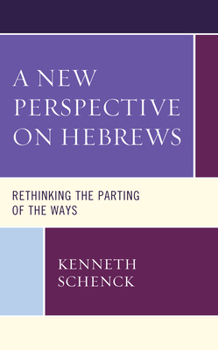A New Perspective on Hebrews: Rethinking the Parting of the Ways
Going against the tide of much recent scholarship on Hebrews, Kenneth Schenck argues that the letter was addressed to a primarily Gentile audience, to console them and strengthen their faith in the wake of the destruction of the Temple. The implications--that Christians, Jews and Gentiles alike, valued the Temple highly and grieved its destruction--point to a new perspective on the so-called parting of the ways between Jews and predominantly Gentile...
Format:Hardcover
Language:English
ISBN:1978706421
ISBN13:9781978706422
Release Date:August 2019
Publisher:Fortress Academic
Length:228 Pages
Weight:1.11 lbs.
Dimensions:0.7" x 6.0" x 9.0"
Customer Reviews
0 rating





